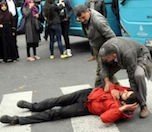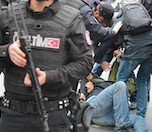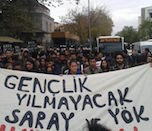Click to read the article in Turkish
Lawyer O. Meriç Eyüboğlu has commented on the Constitutional Court ruling given for her client and former bianet reporter Beyza Kural.
Speaking to bianet about the top court ruling on police violence against journalist Kural during news coverage, lawyer Eyüboğlu has underlined that this ruling must serve as a precedent for all press members who were subjected to similar ill treatment in Turkey.
CLICK - Ruling of right violation for police violence against former bianet reporter Beyza Kural
The Constitutional Court concluded the application of former bianet reporter Beyza Kural, who was subjected to police violence while trying to cover the students' protest in Beyazıt, İstanbul on November 6, 2015. The Court announced its detailed ruling on February 18.
The Constitutional Court has concluded that the prohibition of treatment incompatible with human dignity guaranteed by Article 17 of the Constitution, freedom of expression guaranteed by Article 26 and press freedom guaranteed by Article 28 of the Constitution have been violated.
The top court has also ruled that a new investigation shall be launched so that the consequences of the related rights violations can be eliminated. Kural will be paid 15,000 lira in non-pecuniary damages.
'Violation of freedom of expression and press'
Commenting on the top court ruling within this context, lawyer O. Meriç Eyüboğlu has underlined that the Constitutional Court has found a violation of not only prohibition of ill treatment, but that of freedom of expression and press in Kural's case, which is valuable:
"We have been going through a period when journalists are physically battered up by law enforcement officers during news coverage, they are subjected to all types of ill treatment and they are still put on trial and arrested in spite of all these. Of course, I hope and wish that this ruling will serve as a precedent for similar violations.
"However, let alone other judicial bodies, we cannot even trust that the Constitutional Court, which has given this ruling of right violation, will give the same ruling in a similar application.
"The rulings on Osman Kavala and Selahattin Demirtaş are the most striking examples of the fact that the Constitutional Court rulings are not consistent, in the most polite sense of the term.
"Legally speaking, Constitutional Court rulings are binding and this ruling shall serve as a precedent for all journalists chasing news. But we will see whether it will be the case in practice."
'Justice delayed is justice denied'
Reiterating that she finds the Constitutional Court ruling important, Eyüboğlu has noted, "But I would like to underline that justice delayed is justice denied." Eyüboğlu has briefly added:
"But, in spite of everything, it has been ruled that the police chief who tore Beyza's press card from her neck to 'show her her place' and 'make her know her place', who kept her waiting in rear handcuffs and shouted, 'All of you will learn it, nothing will be the same from now on' shall be put on trial. It is important that the court has concluded that this police chief of 'New Turkey' who thinks that he has immunity should be tried.
"Just as we discuss it, the Constitutional Court has come to the conclusion that Beyza was 'handcuffed behind her back in a manner of deliberately harming her bodily integrity with the aim of humiliating her and teaching her a lesson, so to speak.' The Court has openly emphasized that, in coming to this conclusion, it considered not only the behavior of the police, but also his notorious words, and took both of them into consideration.
"Given that similar behaviors and attitudes as well as similar daring of state representatives were always ignored in other court rulings and Constitutional Court rulings up until now, this ruling's reference to this daring, at least, means putting a note in history. It is a big deal in these times."
What happened?
On November 6, 2015, police tried to take the then bianet reporter Beyza Kural into custody by handcuffing her behind her back while she was covering the protests against the Council of Higher Education (YÖK) in Beyazıt, İstanbul. Trying to take the journalist into custody, the police officer shouted, "Nothing is the same anymore, we will make you learn this." With the intervention of other reporters, Beyza Kural was released.
Kural filed criminal complaints about the incident, but they ended in non-prosecution. Her objections were also rejected by courts on the grounds that "the police did not exceed their right to use force." With her complaints and applications remaining inconclusive, Kural made an application to the Constitutional Court via her lawyer Eyüboğlu. (AS/SD)





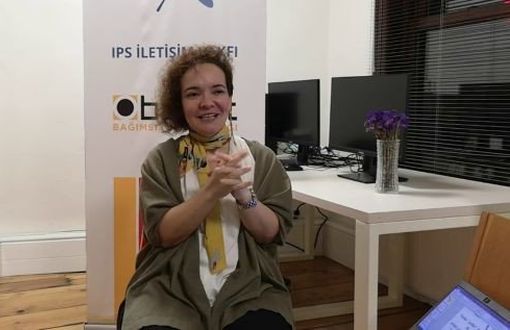
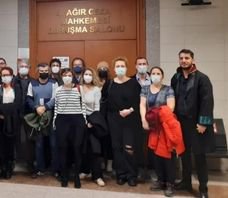
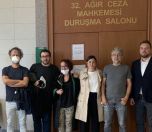
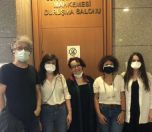


132.jpg)

